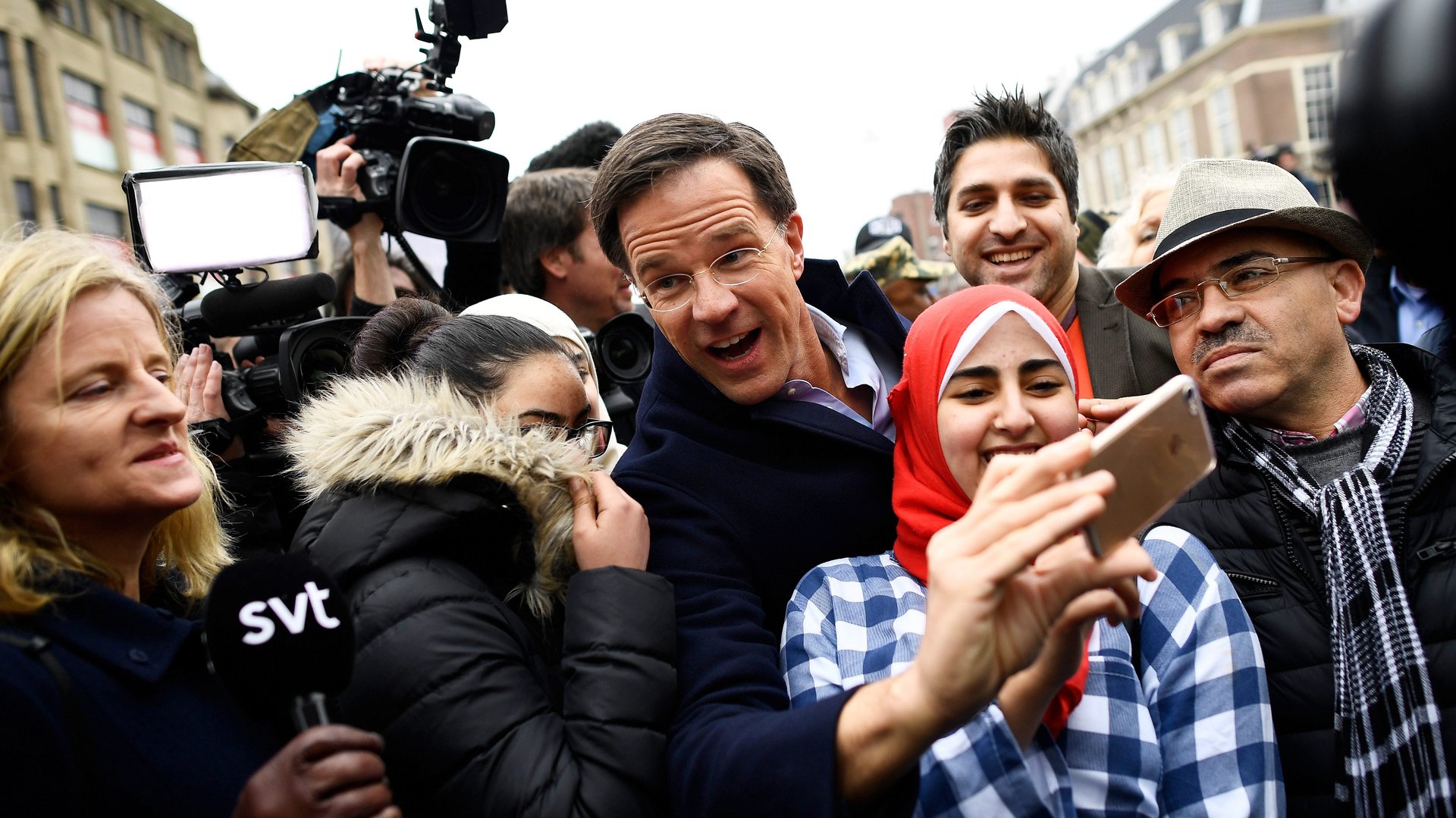It took a record 225 days for the Dutch to get a government
Gefeliciteerd! The Netherlands finally has a government. It only took 225 days to get there.


Gefeliciteerd! The Netherlands finally has a government. It only took 225 days to get there.
The Dutch are no strangers to marathon waits for government coalitions to take shape. On average, it takes the Dutch 90 days to form a government after an election. The longest wait was previously 208 days in 1977, under prime minister Dries van Agt. This year’s coalition talks, which began as soon as Dutch election results were announced in March, put that record well behind it.
In the Dutch parliamentary system, a party needs to win an outright majority (76 parliamentary seats out of 150) to form a working government. No single party has managed that feat in Dutch modern history—the Dutch electoral system is proportional, making it easier for small parties to win seats—so the winner must compromise and form a coalition among other parties.
The Netherlands’s fragmented political spectrum is, however, making it harder and harder to form workable coalitions. Previously, the three largest political parties could do it amongst themselves. But between 1986 and 2012, the proportion of parliament won by the three largest parties dropped from 89% to roughly 60% (paywall). A growing number of small, fringe parties are winning enough seats to attract attention as potential partners during coalition talks.
The most recent Dutch election was a tight race between the center-right party run by incumbent prime minister Mark Rutte and the far-right populists led by Geert Wilders. The vote was widely viewed as a bellwether vote for how far populism could spread across Europe. Rutte, whose party won the most seats, described the result as a defeat for “the wrong kind of populism.” Though Wilders’ party came in second place, all other parties refused to work with him, shutting him out of government.
The coalition that was finally formed consists of four parties: Rutte’s People’s Party for Freedom and Democracy, center-right Christian Democratic Appeal, the center-left D66, and the center-right Christian Union. Rutte will lead a cabinet of 16 ministers and eight secretaries of state.
While the Dutch take the most average time in Europe to form a government, they don’t hold the absolute record. That honor still goes to Belgium, which took 589 days to form a government in 2011. And speaking of tortuous coalition talks, all eyes are now on Germany, which is in the midst of a thorny, three-way negotiation.